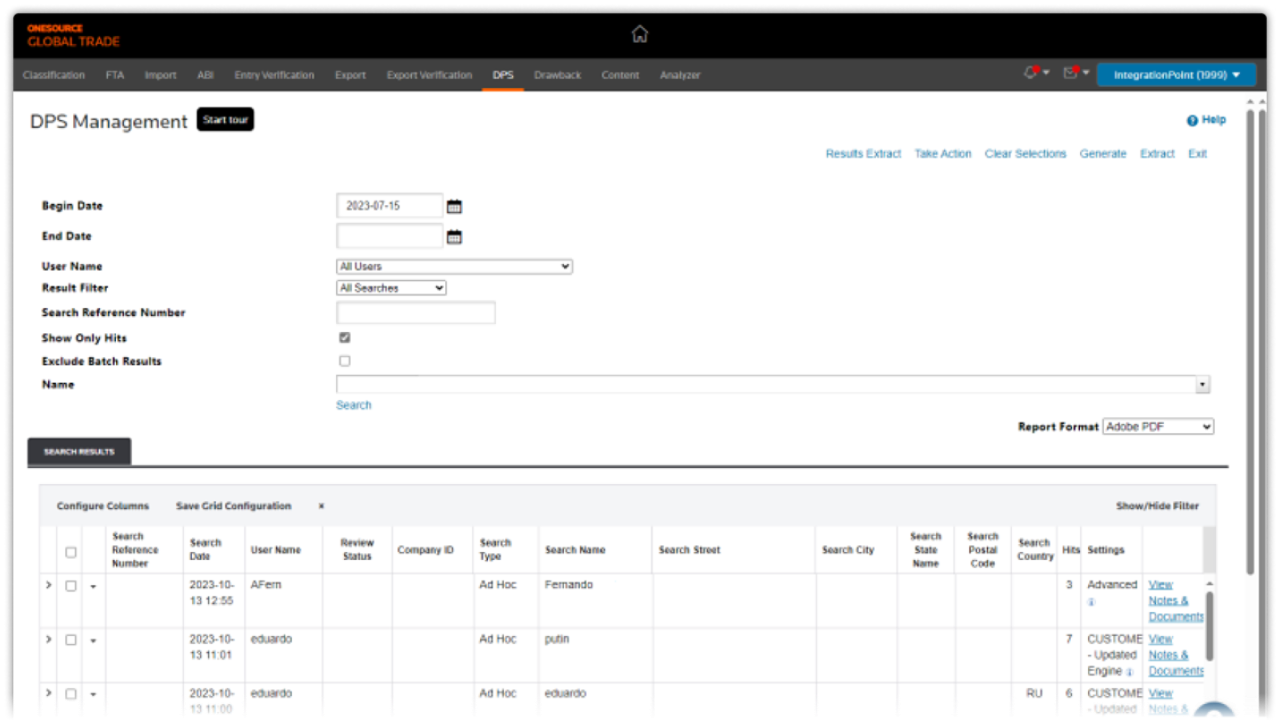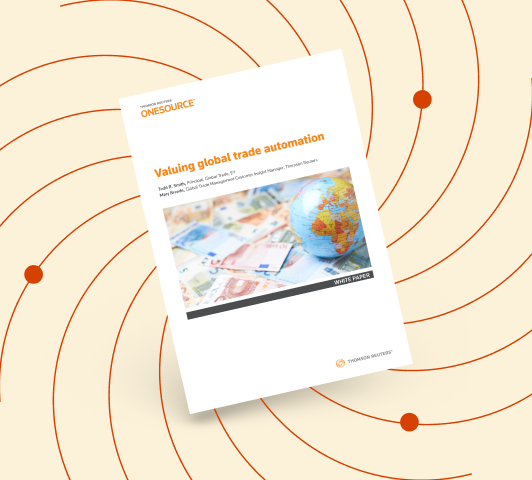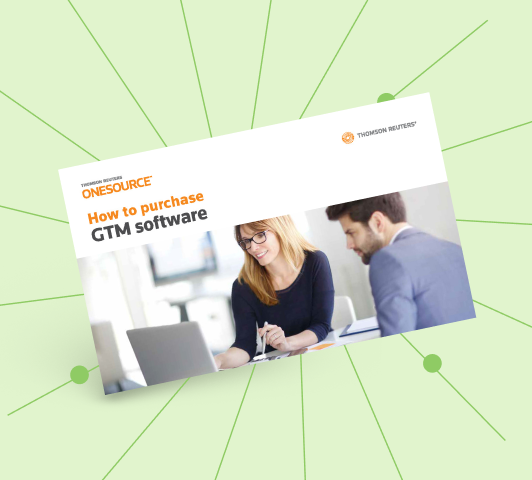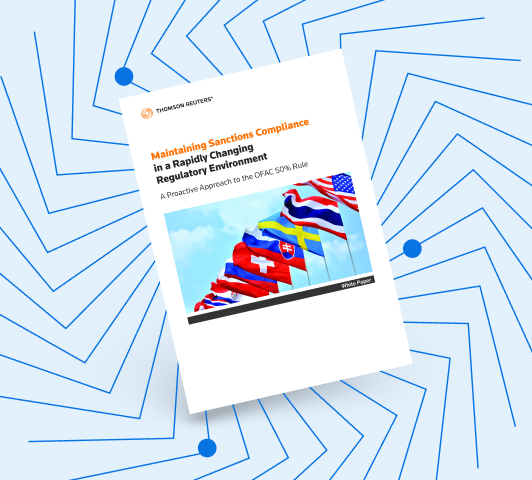ONESOURCE Denied Party Screening
Secure your business with expert screening
Securely conduct global business transactions by automatically screening customers, suppliers, and partners against 750+ global denied party lists

Efficient import/export compliance
Maintain seamless compliance as our denied party screening solution integrates with your management systems. Transactions are automatically blocked when a denied party is identified, ensuring secure trade operations.
Compliance assurance
Ensure due diligence with our solution, regularly updating 750+ global lists. Our content validation process collaborates with government agencies to resolve regulatory information issues, keeping you informed and compliant.
Tailored screening
Adapt screening to your company's requirements by selecting relevant lists and setting a custom-match score based on your risk parameters, ensuring precise and effective compliance management.
Reputation protection
Safeguard your company's reputation and interests by automating restricted-party screening, ensuring compliance with current regulations and data privacy laws, while saving time and resources.
Smart and secure way of reducing risks and penalties
Simplify legal compliance
Facilitate compliance by integrating screening results that adhere to U.S. State and Commerce best practices and meet global agency expectations.
Enhance transaction security
Ensure protections in the import and export compliance process by vetting your supply chain partners against 750+ global lists for restricted persons, companies, and embargoed countries.
Mitigate screening risks
Prevent false positives in screening with records that contain over 30 elements — such as name, age, date of birth, locations, citizenship and others — saving time and reducing risk.
Uncover sanctions ownership data
Use Dow Jones' expertise to uncover elusive sanctions ownership data, structuring risk profiles through research and analytics to enhance due diligence.
Screen PEPs and adverse media
Analyse data for Politically Exposed Persons (PEPs) and Adverse Media by examining factors like gender, identity details, and original script names.
Leverage screening methods
Utilise various screening methods, such as SAP, Oracle and SalesForce connectors, APIs, manual, batch and screening processes incorporated, within import and export management solutions for thorough compliance.
Talk to an expert
Utilise ONESOURCE Denied Party Screening to ensure compliance and reduce risk effectively.
What do our customers think?

If we had not structured our denied and restricted party screening input processes and batch processes using ONESOURCE DPS, we would not have been in position to expand our compliance program even more and bring in more and now newly relevant trading partnerships.
Thomas Behr, Director of Global Trade Development, JM Huber
Featured resources
Valuing Global Trade automation
How to purchase GTM software
Maintaining sanctions compliance in a rapidly changing regulatory environment
Frequently asked questions
Denied party screening is the process of checking individuals or entities against government-issued lists of restricted parties. It's crucial for compliance with trade regulations, helping companies avoid legal penalties, fines, and reputational damage by ensuring they do not engage in prohibited transactions.
Companies use specialised software and databases to automate denied party screening. These tools cross-reference parties against updated government lists, ensuring compliance. Some firms may also perform manual checks for added accuracy, integrating screening into their supply chain and customer onboarding processes.
Failing to conduct denied party screening can lead to severe penalties, including substantial fines, legal action, and loss of export privileges. It may also damage a company’s reputation and result in strained business relationships, emphasising the need for diligent compliance measures.
Sanctions Ownership Research, offered through Dow Jones Risk & Compliance, provides data on companies owned or controlled by sanctioned individuals or entities. This enhances due diligence by uncovering hard-to-find information to structure risk profiles accurately.
Automating denied party screening enhances efficiency by quickly processing large volumes of data, reducing human error, and ensuring consistent compliance with regulations. It allows businesses to focus on strategic tasks while maintaining a reliable and up-to-date screening process, ultimately safeguarding against legal and financial penalties.
Effective solutions should offer real-time updates to ensure compliance with the latest regulations, integration capabilities with existing systems, user-friendly interfaces for ease of use, and comprehensive reporting tools for audit trails and management insights. These features help streamline operations and enhance security.
Related products
Access up-to-date global trade regulations and compliance data to streamline cross-border operations and reduce risk.
Automate and standardise product classification for seamless global trade and reduced compliance risk.
Streamline export workflows, automate documentation, and stay compliant in dynamic international markets.
Experience it for yourself
Utilise ONESOURCE Denied Party Screening to ensure compliance and reduce risk effectively.
Have questions? Contact a representative



